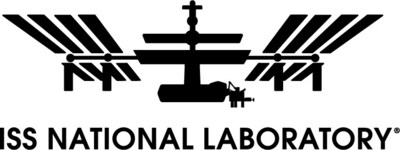|
Crew-8 Astronauts to Support Variety of R&D Projects During Six-Month Science Expedition
KENNEDY SPACE CENTER, Fla., Feb. 26, 2024 /PRNewswire/ -- Four new crew members will work on dozens of scientific investigations during their stay on the International Space Station (ISS) as part of the next six-month science expedition in low Earth orbit. The investigations, many of which are sponsored by the ISS National Laboratory®, aim to increase our understanding of fundamental and applied sciences, as well as advance technology to benefit humanity back on Earth.
NASA astronauts Matthew Dominick (commander), Michael Barratt (pilot), and Jeanette Epps (mission specialist) along with Roscosmos cosmonaut Alexander Grebenkin (mission specialist) will work on projects spanning a variety of disciplines, including in-space production applications, life and physical sciences, and technology development as part of SpaceX's eighth rotational crew mission (Crew-8) contracted by NASA.
Below highlights a few of the ISS National Lab-sponsored research investigations the Crew-8 astronauts will conduct during their mission:
- A continuing investigation from Emory University will examine microgravity's effects on the growth and function of heart muscle cells as they mature into tissue-like structures. Findings will help advance cardiac disease modeling and could lead to the development of new therapies to treat heart disease in patients on Earth.
- Pharmaceutical company Eli Lilly & Company and Butler University will partner with Redwire Corporation on two investigations leveraging Redwire's Pharmaceutical In-space Laboratory (PIL-BOX), a platform that aims to crystallize organic molecules in microgravity. Results from this could lead to improved therapeutics to treat an array of conditions.
- A project from the National Stem Cell Foundation (NSCF) will continue to study the mechanisms behind neuroinflammation, a common feature of neurodegenerative diseases. Researchers created 3D brain models derived from induced pluripotent stem cells (iPSCs) of patients with Alzheimer's and Parkinson's diseases as well as primary progressive multiple sclerosis (PPMS) to carry out this study.
- Multiple projects aim to test a variety of technologies in space, including an updated version of the HPE Spaceborne Computer-2, a commercial off-the-shelf supercomputer from Hewlett Packard Enterprise (HPE) based on HPE ProLiant and Edgeline servers. Another project from space robotics company GITAI will test a pair of robotic arms on the exterior of the space station to evaluate how well they function in the space environment.
- Boeing partnered with NASA and the ISS National Lab, launching an investigation testing protocols for future Genes in Space™ student-led investigations. The project aims to expand the capabilities of the Genes in Space toolkit and complete an end-to-end microbial characterization of the water recovery system on the space station.
The Crew-8 mission, which is part of NASA's Commercial Crew Program, is slated to lift off on a SpaceX Falcon 9 rocket from Launch Complex 39A at Kennedy Space Center in Florida no earlier than March 1, 2024, at 12:04 a.m. EST.
Over the coming weeks, additional information will be made available about ISS National Lab-sponsored investigations launching on future Commercial Resupply Services missions to the space station. To learn more, visit our launch page.
Download a high-resolution photo for the release: Crew-8
About the International Space Station (ISS) National Laboratory:
The International Space Station (ISS) is a one-of-a-kind laboratory that enables research and technology development not possible on Earth. As a public service enterprise, the ISS National Laboratory® allows researchers to leverage this multiuser facility to improve quality of life on Earth, mature space-based business models, advance science literacy in the future workforce, and expand a sustainable and scalable market in low Earth orbit. Through this orbiting national laboratory, research resources on the ISS are available to support non-NASA science, technology, and education initiatives from U.S. government agencies, academic institutions, and the private sector. The Center for the Advancement of Science in Space™ (CASIS™) manages the ISS National Lab, under Cooperative Agreement with NASA, facilitating access to its permanent microgravity research environment, a powerful vantage point in low Earth orbit, and the extreme and varied conditions of space. To learn more about the ISS National Lab, visit our website.
As a 501(c)(3) nonprofit organization, CASIS accepts corporate and individual donations to help advance science in space for the benefit of humanity. For more information, visit our donations page.
International Space Station (ISS) National Laboratory
| Managed by the Center for the Advancement of Science in Space, Inc. (CASIS)
| 6905 N. Wickham Rd., Suite 500, Melbourne, FL 32940 • 321.253.5101 • www.ISSNationalLab.org
|
 View original content to download multimedia:https://www.prnewswire.com/news-releases/crew-8-astronauts-to-support-variety-of-rd-projects-during-six-month-science-expedition-302071466.html View original content to download multimedia:https://www.prnewswire.com/news-releases/crew-8-astronauts-to-support-variety-of-rd-projects-during-six-month-science-expedition-302071466.html
SOURCE International Space Station National Lab

[ Back To TMCnet.com's Homepage ]
|


